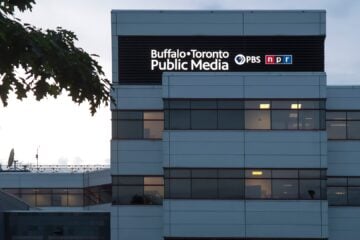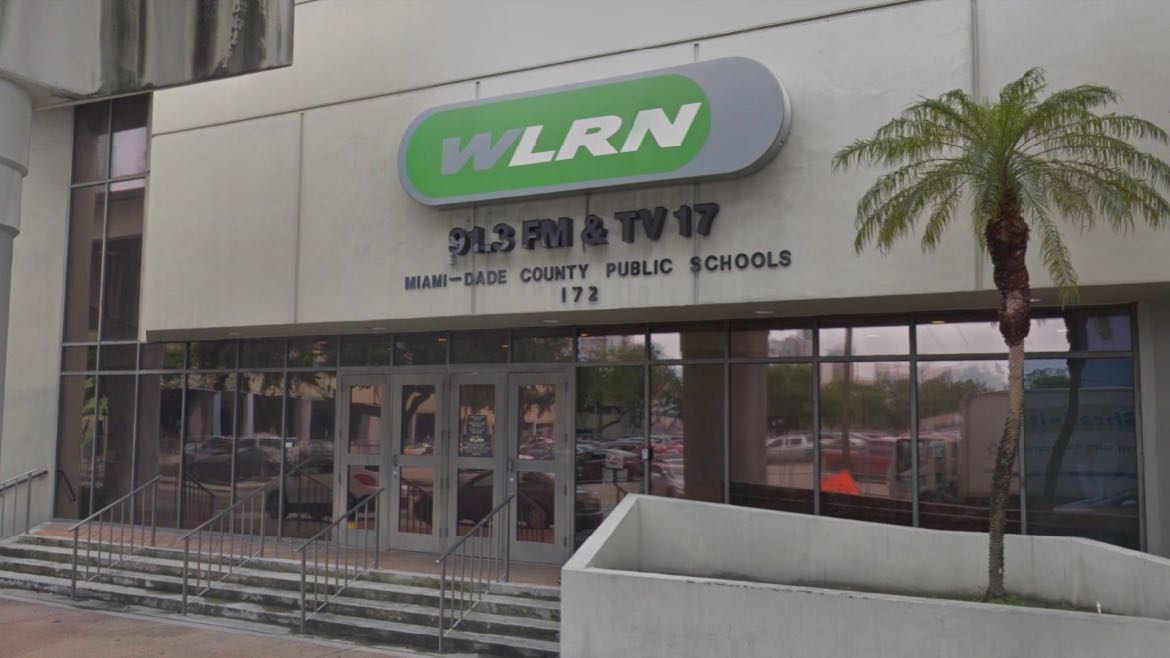By censoring ‘Arthur’, Alabama network turns back the clock
In 2005 I was nearing the end of two years as a stay-at-home mom, caring for my two daughters, then 6 and 2 years old. Arthur was as much a part of our daily routine as bathing.
It feels like a lifetime ago, but I remember when the news broke that the PBS Kids program Postcards from Buster, an Arthur spinoff, was taking viewers to Vermont to learn about making maple syrup from a family with two moms. My partner and I were excited that our children would finally see their own reality reflected and affirmed on TV. We weren’t maple syrup makers.
But then a tsunami of fear and ignorance rolled in and swept that joy away. When PBS withdrew the episode before broadcast, it felt like our family was shoved into a closet. Fortunately, we were able to get our hands on a DVD of that episode. Like underground samizdat literature in Soviet Russia, we passed it along to friends in our community of “Rainbow Families.” But the feelings of exclusion and anger at the way public broadcasting caved on its mission of diversity and inclusion stings to this day.
Imagine my joy — 14 years later — when WGBH and Arthur once again modeled the meaning of inclusion with a 12-minute episode in which a beloved teacher, Mr. Ratburn, marries Patrick, the town chocolatier. This story and the victory for inclusion it represented was sweeter than chocolate. I eagerly shared the link with my now-16-year-old daughter, who still likes to sing the show’s catchy theme song.
Arthur, Buster and Muffy haven’t aged a bit, but our culture has certainly grown up. “It’s a brand-new world,” says Francine.
But the old world is still clamoring for a comeback. Young fans of Arthur are growing up in a world where marriage equality is a fact as real as an African American president and working mothers. But in Alabama, a crimson tide of fear is slamming the closet door shut again. Alabama Public Television was an unfortunate accomplice.
I’ve been to Alabama. One snowy April morning in 2013, I boarded a bus with my daughters and my mother and 50 other residents of Montgomery County, Md., headed to the South for a Civil Rights Education Tour. In Montgomery we visited the Southern Poverty Law Center’s somber Civil Rights Memorial, which honors those killed in the struggle. In Selma we walked over the Edmund Pettus Bridge, the site of “Bloody Sunday,” when racist police on horseback brutally attacked children leading a peaceful march for voting rights. And in Birmingham we sat in the pews of the 16th Street Baptist Church, where four little girls were murdered in a terrorist bomb attack.
It was important to me that my children be exposed to these truths, that they learned about the lives of others outside of their own little world and were inspired by patriots who fought and died on American soil for freedom and fairness. The pilgrimage south was one of the most profoundly transformative spiritual experiences of my life.
I was reminded of this journey and the ghosts of the past this week as I listened to NPR’s new podcast, White Lies, about an unsolved civil-rights–era murder in Selma, and then again when I learned that Alabama Public Television censored the Arthur episode, depriving children in its state the chance to have their minds opened to the diversity of their communities and their world.
Truly, what is more dangerous: two men making a sacred commitment to one another, or the denial of that reality? LGBT parents and LGBT children (yes, some kids know they are gay or transgender before they step foot in a school) are part of the audience Alabama Public Television is privileged to serve. Some are donors, and some are Christians, too.
This year we are marking the 50th anniversary of Sesame Street, a program celebrated for its radical vision of diversity and inclusion. But the program almost didn’t air in Mississippi because in 1970 some members of the state commission for educational TV “felt that Mississippi was not yet ready” for a children’s show with an interracial cast.
Thank goodness that decision was reversed, and children of my generation who grew up in Mississippi were permitted to “get to Sesame Street.”
That’s why Alabama Public TV’s preemptive strike against a children’s show depicting marriage equality is so disappointing. Have we learned nothing from history?
According to U.S. News & World Report, Alabama today ranks 50th in the U.S. on quality of education. Alabama Public TV is truly on the front lines of trying to change that. That’s the mission of public media.
But we must go a step further and recognize that our mission also encompasses enlightenment. That word, that idea might not be politically correct in 2019, but it’s what President Lyndon B. Johnson explicitly said when he signed the Public Broadcasting Act of 1967.
Correction: An earlier version of this commentary misattributed the quotation “It’s a brand-new world” to Mr. Ratburn’s sister. It was said by the character Francine.






Well said.
FWIW, while PBS did withdraw that “Postcards from Buster” episode, it was made available by the producer to air on individual stations. I ran it, took flak for it, and never regretted it.
Happily, the “Arthur” episode aired here in Central Illinois without so much as a single complaint. Times change. Not fast enough, and not without taking steps backward. But we move ahead regardless.
Glad to hear that Central Illinois didn’t freak out. Perhaps anti-gay activists and media-watchers have their hands full with more pressing matters, like fighting for the rights of bakery owners to refuse to let LGBT couples have their cake and eat it, too.
It’s true that WGBH went ahead and distributed that Postcards with Buster episode 14 years ago. I don’t know how many stations wound up airing it, but I’m sure they were in the minority.
Public media seems especially averse to controversy – a disappointing by-product of government-funding.
Totally agreed. I am from Canada, but I am shocked and saddened that Alabama and Arkansas did not air the episode in its regular time slot. The PBS stations of those states need new directors of programming.
Fortunately, AETN decided to air it after all, on one of their ancillary channels. It’s not the same as broadcasting it live, but it’s progress.